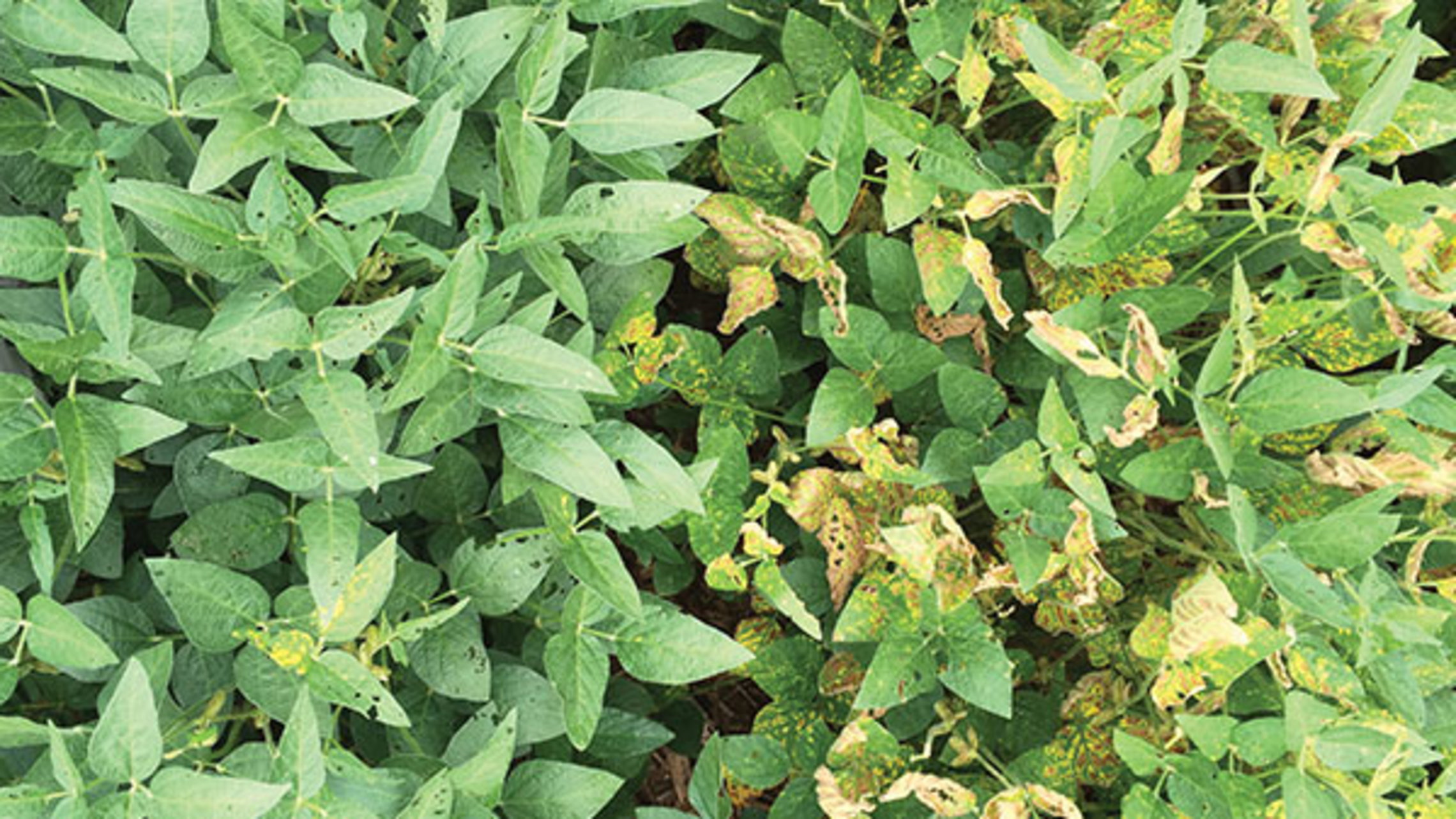The fight continues against Sudden Death Syndrome and Soybean Cyst Nematodes

These top yield robbers are hard to detect and hard to eradicate
Sudden Death Syndrome (SDS) and Soybean Cyst Nematodes (SCN) consistently rob soybean yields every year. They are undetectable, hard to diagnose and almost impossible to remove from the soil. Traditional means of combating these yield robbers, such as crop rotation and delayed planting, don’t always work.
How does a grower protect against something so persistent and dangerous to their potential yield? Starting at first plant may help.
“Choosing the right seed treatment early on can protect plants from soilborne diseases and nematodes hiding beneath the ground,” said Jeremiah Mullock, BASF Product Development Manager. “And the seed treatment can additionally protect against first initial fungal infections that occur within hours after planting.”
First seen in Arkansas in 1972, SDS continues to be a major issue in soybean-growing regions. Once SDS is present in the field, the fungus remains in the soil even with crop rotations and can also be spread by soil movement to neighboring fields.
“SDS attacks the plant in two phases,” said Mullock. “Below the ground initial infections of SDS occur on the roots and crowns of young soybean seedlings, resulting in Fusarium root rot that reduces root mass and can lead to yield reductions. Later in the season, the fungus produces toxins that can cause visual symptoms above ground including leaf drop and reduced pod fill, which can cause up between 50 to 90 percent yield loss.”
SDS is not the only disease that can have a drastic impact on a soybean crop. SCN causes more yield loss in soybeans than any other pest. SCN is a round worm that infects the roots of a plant by creating a permanent feeding site where it draws out plant nutrients. These nematodes can cause stunting, thin strands, chlorosis, root decay and other damage. However, symptoms of nematodes often cannot be seen or are confused with other problems.
“Once SCN is in the field, it cannot be eliminated, making it essential to actively manage the pest with multiple strategies,” said Mullock. “The practice of growing SCN-resistant soybean varieties is considered to be the most effective tool for the management of this disease, but it is far from a complete solution.”
ILeVO® seed treatment is the only product that offers effective protection against both SDS and nematodes in the seed zone, resulting in healthier plants and higher yield potential. Using ILeVO complements the use of SCN-resistant soybeans and SDS-tolerant varieties.
“Because the varieties are bred to minimize the symptoms of SDS and SCN, growers can optimize yield potential by pairing tolerant varieties with the protection ILeVO brings against root rot infection, foliar symptoms and nematodes,” said Mullock. “The seed treatment also adds additional help to combating the resistance seen in some seed varieties.”
With a soybean seed treatment that combats both SDS and SCN, growers can get that much-needed peace of mind, a healthier plant and potentially a higher yield.
To learn more about ILeVO seed treatment and the BASF seed treatment portfolio, please visit agproducts.basf.com.
Always read and follow label directions.
ILeVO is a registered trademark of BASF.
About BASF’s Agricultural Solutions division
With a rapidly growing population, the world is increasingly dependent on our ability to develop and maintain sustainable agriculture and healthy environments. Working with farmers, agricultural professionals, pest management experts and others, it is our role to help make this possible. That’s why we invest in a strong R&D pipeline and broad portfolio, including seeds and traits, chemical and biological crop protection, soil management, plant health, pest control and digital farming. With expert teams in the lab, field, office and in production, we connect innovative thinking and down-to-earth action to create real world ideas that work – for farmers, society and the planet. In 2017, our division generated sales of €5.7 billion. For more information, please visit www.agriculture.basf.com or any of our social media channels.
About BASF
At BASF, we create chemistry for a sustainable future. We combine economic success with environmental protection and social responsibility. The more than 115,000 employees in the BASF Group work on contributing to the success of our customers in nearly all sectors and almost every country in the world. Our portfolio is organized into five segments: Chemicals, Performance Products, Functional Materials & Solutions, Agricultural Solutions and Oil & Gas. BASF generated sales of €64.5 billion in 2017. BASF shares are traded on the stock exchange in Frankfurt (BAS) and as American Depositary Receipts (BASFY) in the U.S. Further information at www.basf.com.
